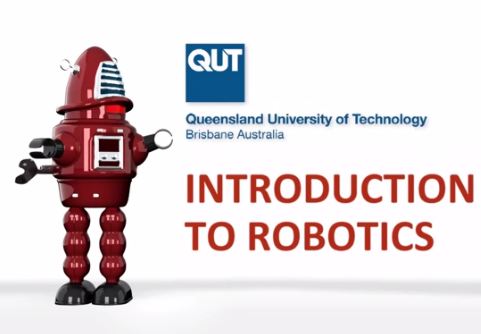| Introduction to Robotics MOOC |
| Written by Sue Gee | |||
| Friday, 13 February 2015 | |||
|
A seven-week MOOC that provides an introduction to robotics and the mathematics and algorithms required to control them starts on February 15th, It is the first of two courses based on a 13-week undergraduate course from the Queensland University of Technology, Australia and is taught by Professor Peter Corke, a specialist in Robotic Vision, which is the topic of the follow-on course that starts in April. The first course starts by looking at where the idea of robots has come from, and the difference between fictional and real robots. After looking at a number of useful real world robots and what they do, the course moves on to an understanding of the representation of pose and motion, kinematics, dynamics and control. If you have access to a LEGO Mindstorms robotics development kit as an optional extra you will be able to build a simple robot arm and write the control software for it. Professor Peter Corke gives a brief overview in this video:
By the end of this course students should be able to:
The workload for the course is 4-8hours divided between viewing lecture videos and completing optional quiz questions to check your understanding (2 hours per week), weekly assessable quizzes (30 minutes) and weekly programming exercises using MATLAB (2 hours). Allow another hour or two for the optional LEGO-based project, doing further research and joining in forum discussions. To gain a certificate you need to complete the assessable quizzes and programming exercises and have achieved a cumulative pass drawn from your 4 best results of the 6 weekly quiz assessments, and your 4 best results of the 6 MATLAB programming assessments. A down-loadable license to use MATLAB for free for the duration of the course is provided courtesy of MathWorks. If you don't want to submit assessment you can still join in the robot building project. which is peer assessed, but won't earn a certificate. The prerequisites for the course are some knowledge of basic programming and of vectors and spaces, matrices, and eigenvalues and eigenvectors. Links to Khan Academy instructional videos are provided for you to brush up your maths. The optional project to build a simple robot arm and write the software to control it is an appealing optional extra for this course and if you do it you'll be able to expand on this project in the follow on 7-week course on Robotic Vision.
More Information
Related ArticlesThe LEGO MINDSTORMS EV3 Discovery Book (book review) The LEGO Mindstorms NXT 2.0 Discovery Book (book review) Basic Robot Building With LEGO Mindstorms NXT 2.0 (book review)
To be informed about new articles on I Programmer, install the I Programmer Toolbar, subscribe to the RSS feed, follow us on, Twitter, Facebook, Google+ or Linkedin, or sign up for our weekly newsletter.
Comments
or email your comment to: comments@i-programmer.info
|
|||
| Last Updated ( Friday, 13 February 2015 ) |



